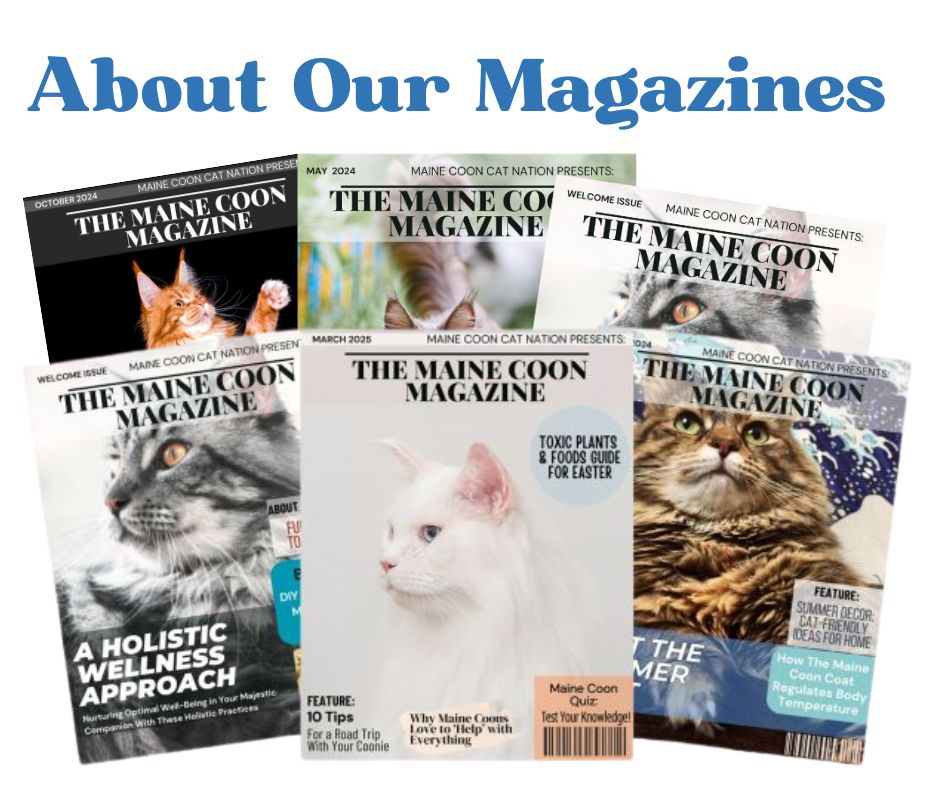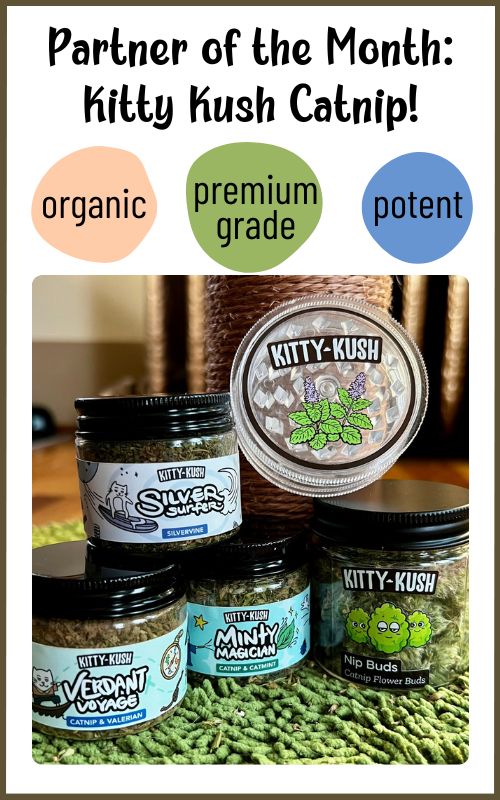- Home
- How to Find a Coonie
- What is a Backyard Breeder?
What is a Backyard Breeder?
Whether you are looking for a new fur baby or not, you may have wondered "exactly what is a backyard breeder?" You may even wonder why it seems to be viewed negatively.
After all, on our pages we recommend a small home cattery, where kittens are raised underfoot.
So puppies and kittens being born and raised at home, where there is a backyard, should be a good thing, right? This term can be a bit of an enigma!
Recently I passed an interesting scene while driving. I slowed to approach a red light alongside a yellow farmhouse with a large yard.
There were lawn chairs and a large fenced-in pen area, with a big sign that read "Double-Doodle puppies! Six left!"
This space was set up to be used to show off the litter of puppies soon. How adorable and tempting!
I made a mental note to take note of the yard on my way back home.
How to Spot Reputable Breeders
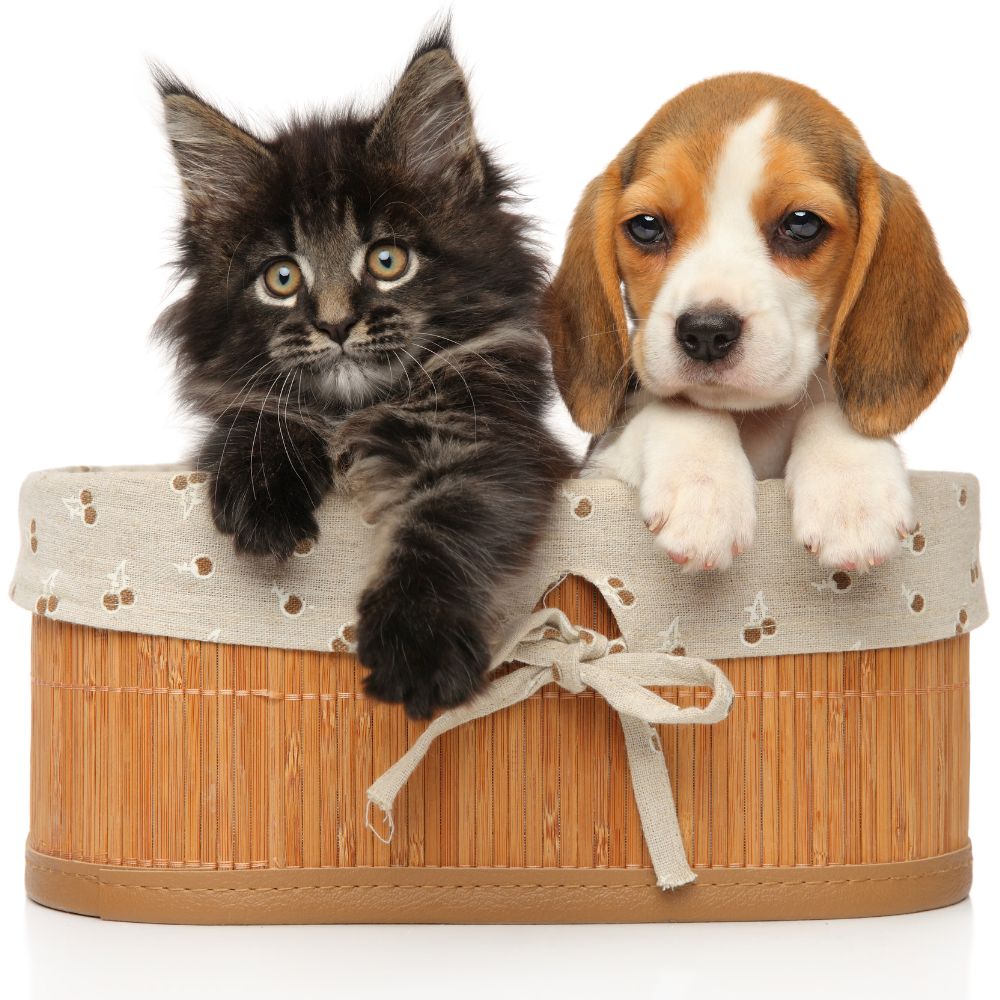
Trying to find a new kitten or puppy of any breed can be an exciting yet daunting undertaking.
Understanding the difference between a reputable breeder and the pitfalls of backyard breeding is an important part of this process.
Unlike scam artists, who don't have puppies or kittens and are running a scam for money, this is a multilayered, nuanced topic.
Let's talk about how to identify and avoid backyard breeders, and why doing this is so important.
The term backyard breeder refers to an individual who breeds animals without a deep understanding of the complexities and responsibilities involved.
Unlike reputable breeders who focus on the health, temperament, and genetic integrity of their animals, backyard breeders may lack the necessary knowledge, resources, or ethical standards to ensure the well-being of their pets.
What Is a Backyard Breeder?
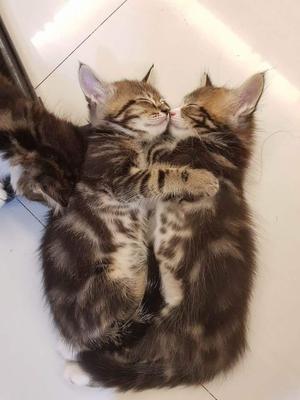
In a nutshell, backyard breeders are pet owners who happen to have a female pet of a particular breed, and happen to have or have access to a male as well, and decide to breed them.
They do this without obtaining breeding rights from their breeder, and without education, mentoring, genetic testing and other practices that are essential to breeding.
They are not simply a "bad breeder." They are typically characterized by their casual, uneducated approach to breeding.
They might start with good intentions, often viewing breeding as a hobby rather than a serious, lifelong commitment.
But, without the proper expertise and dedication, this practice can lead to significant issues for both the animals and their new owners.
Unlike puppy mills, which operate on a large scale with profit as the primary motive, backyard breeders might not see themselves as part of the problem.
They don't mass-produce dogs or cats, their animals don't live in horrible conditions, and they are often loving, well-meaning pet owners.
Yet, their lack of adherence to responsible breeding standards can result in similar negative outcomes.
On one of our community pages, a reader asked: "I have a female Maine Coon which I would like to breed with a male Maine Coon in the near future. Do you or do you know of anyone who can provide a stud?"
In response, Vasili's Maine Coon Cats shares their professional insights: "I can tell you that breeding quality cats is very expensive not to mention very time consuming.
First and foremost to all the posters. If you have a Maine Coon cat, male or female and you do not have breeding rights then you are not supposed to be breeding your cat, period!
If your bought your cat from a reputable breeder then you signed a contract saying you would have your kitten spayed/neutered.
To breed without breeding rights makes you unethical and dishonest.
When a kittens papers are filed with the cat associations (CFA and TICA) they will come back as "Not for breeding" on the certificate."

Signs of Backyard Breeders
Lack of Health Testing: One of the hallmarks of backyard breeders is the absence of responsible genetic testing.
Unlike reputable breeders who perform genetic screenings to avoid hereditary diseases, backyard breeders may not be aware of or choose to ignore these crucial tests.
This can lead to offspring with serious health problems that may not be immediately clear.
Poor Living Conditions: Backyard breeders often do not provide the optimal living environment for their animals.
Their facilities may be cramped, unsanitary, or lacking in proper socialization opportunities. This can result in behavioral issues and a lower quality of life for the animals.
Limited Knowledge of Breeding Practices: Many backyard breeders lack a comprehensive understanding of breeding practices.
They might not be familiar with the breed standards, proper mate selection, or the care required during pregnancy and after birth. This can lead to complications and unhealthy litters.
No Long-Term Commitment: Unlike hobby breeders who might invest significant time and effort into improving a breed, or breeding to a standard, backyard breeders often lack long-term commitment.
Their focus is on short-term results, such as producing a specific number of litters without considering their long-term health or betterment of the breed.
Inadequate Socialization: Proper socialization is crucial for the development of well-adjusted pets.
Backyard breeders may not have the resources or knowledge to properly socialize their animals, leading to pets that may struggle with anxiety, aggression, or other behavioral issues.
Minimal Screening of Potential Owners: Reputable breeders take great care in selecting the right home for their animals, often requiring contracts and thorough interviews with prospective buyers.
In contrast, backyard breeders might be more concerned with making a quick sale, leading to pets ending up in homes that are not well-prepared for their needs.
After looking at these characteristics it's easy see why it’s so important to distinguish between backyard breeders and responsible, ethical, educated and experienced ones.
After all, we want to find a healthy puppy or kitten with a temperament befitting their breed, who will be with us for a full lifetime!
Kudos to anyone who takes the time to research, and to ask the question "What are backyard breeders, really?"
Problems That Can Arise From Backyard Breeding:
The impact of this practice extends beyond individual animals and affects broader communities, including shelters and rescue groups. There are significant issues that arise from backyard breeding.
Health and Genetic Issues
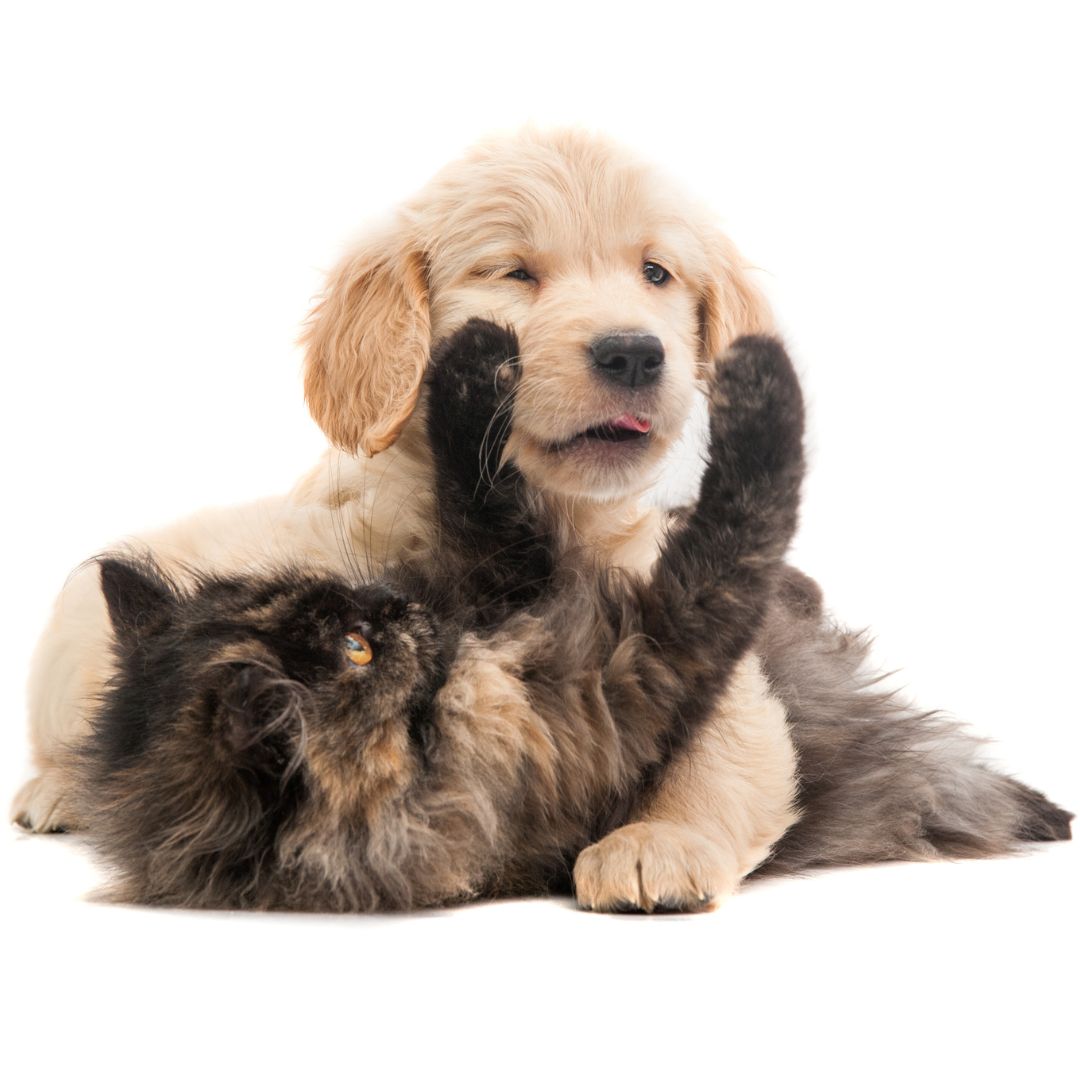
One of the most alarming impacts of backyard breeders is the prevalence of health and genetic problems in their animals.
Unlike good breeders who focus on rigorous health testing and genetic screening, backyard breeders often neglect these crucial steps.
This negligence can result in pets with a host of medical issues, such as hip dysplasia, heart conditions, and hereditary eye disorders.
Imagine bringing home a new puppy from a pet store or a backyard breeder, only to discover that your furry friend has a serious, undiagnosed condition.
The emotional and financial toll on the pet owners can be overwhelming.
The quality of life for the animal may be compromised, leading to chronic pain and a shortened lifespan. By choosing responsible breeders, we help ensure that our pets lead healthy, fulfilling lives.
Behavioral Problems Due to Poor Breeding Practices
Beyond physical health, the behavioral well-being of animals is also at risk. Backyard breeders often lack the knowledge and resources to properly socialize their animals.
Puppies and kittens need early, positive interactions to develop into well-adjusted adults.
Inadequate socialization can lead to a range of behavioral issues, including anxiety, aggression, and difficulty adapting to new environments.
Picture adopting a pet that has never been properly socialized. The challenges of managing fearfulness or aggression can be daunting for any pet owner.
These behavioral problems not only affect the bond between pet and owner but can also result in the pet being surrendered to shelters.
Responsible breeders invest time and effort into socializing their animals, laying the foundation for confident, well-behaved companions.
Broader Impact on Animal Shelters and Rescue Organizations
The ripple effect of backyard breeding reaches animal shelters and rescue organizations as well.
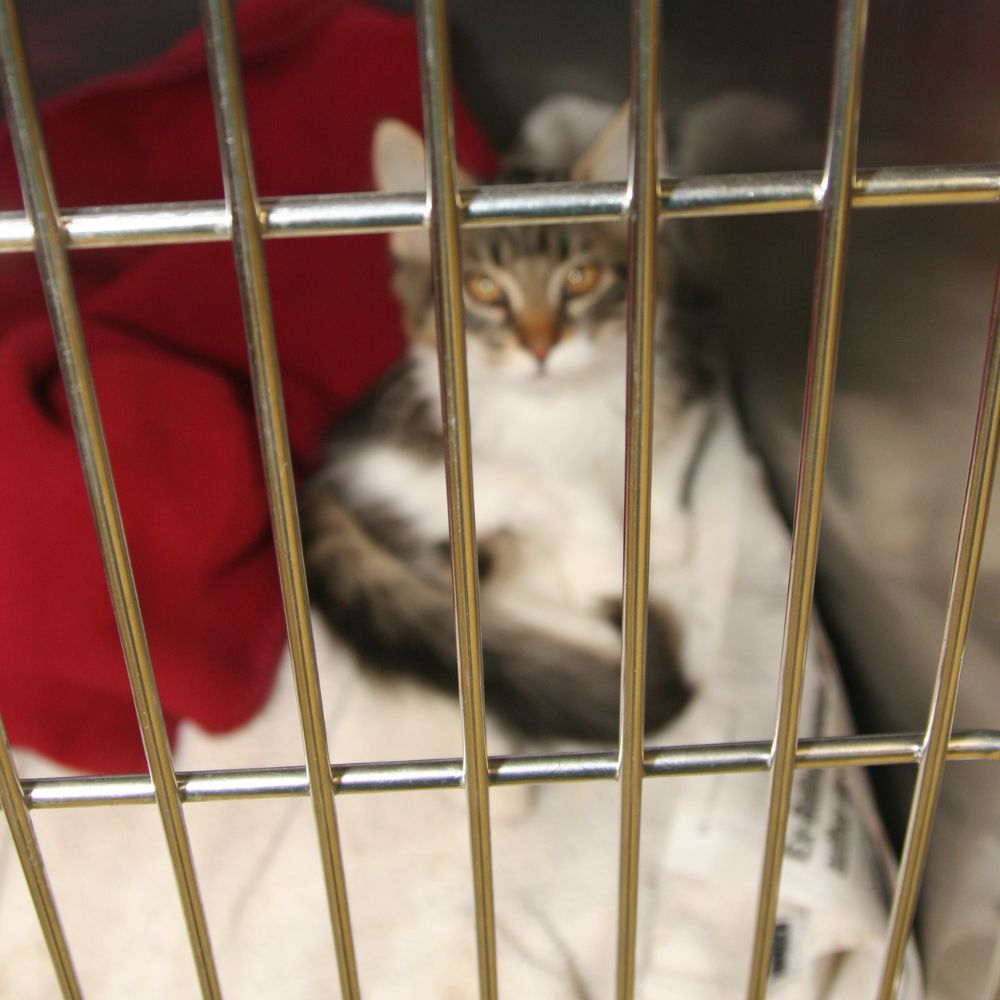
Shelters are often overwhelmed with animals that have been abandoned or surrendered due to health or behavioral problems stemming from poor breeding practices.
Rescue groups work tirelessly to rehabilitate these animals, but the sheer volume can be overwhelming.
When pets from backyard breeders end up in shelters, it puts strain on already limited resources.
Shelters may struggle to provide adequate care, and the chances of finding new, loving homes for these animals can diminish.
This cycle perpetuates a grim reality for countless pets who deserve better.
Choosing to support reputable breeders and adopting from shelters helps break this cycle.
By doing so, we reduce the demand for poorly bred animals and support the tireless efforts of rescue organizations dedicated to giving every pet a chance at a happy life.
Understanding the impact of backyard breeding underscores the importance of making informed choices when it comes to bringing a new pet into your home.
By supporting good breeders and adopting from reputable shelters, we can collectively promote better healthier, happier lives for all pets!

Why Do Backyard Breeders Exist?
Responsible pet ownership means learning why backyard breeders exist in the first place. Certain motivations and societal factors are at play:
Economic Motivations
One of the primary reasons is economic.
Unlike reputable breeders who invest significant resources into health testing, proper care, and ethical breeding practices, backyard breeders often see breeding as a quick way to make extra money.
The lure of easy profit can be tempting, especially when there’s a market for “cute” pets that can be sold quickly.
These economic motivations can lead people to cut corners, neglecting the necessary health screenings and proper care that good breeders prioritize.
The result? A cycle where animals are bred solely for financial gain, with little regard for their well-being or the long-term health of the breed.
Lack of Knowledge or Education About Responsible Breeding
Another significant factor is the lack of knowledge or education about responsible breeding practices.
Many backyard breeders simply don’t understand the complexities involved in breeding healthy, well-adjusted animals.
They might not be aware of the genetic issues that can arise or the importance of early socialization.
This gap in knowledge can lead to unintentional harm to the animals they breed.
Imagine a back yard breeder who loves their pets but doesn’t know about the necessary health tests or proper socialization techniques.
Without this knowledge, they might inadvertently produce litters with serious health or behavioral problems, contributing to the broader issues we’ve discussed.
Education and awareness are key to transforming these breeders into responsible pet owners who focus on the well-being of their animals.
The Role of Demand for "Cheap" Pets
The demand for "cheap" pets plays a crucial role in perpetuating backyard breeding.
Many prospective pet owners are drawn to lower prices, often unaware of the long-term costs associated with poorly bred animals.
Pet stores and online marketplaces can make it easy to buy a pet without considering the breeder’s practices or the animal’s background.
Many folks are unaware of how much money it costs a professional breeder to produce healthy puppies or kittens, as well as to provide proper care for them, for their adult breeding pets, and to take part in the screening necessary to avoid genetic health issues.
This demand for low cost purebred pets creates a market where irresponsible breeders can thrive, offering pets at lower prices without the investment in proper care and health testing.
While it might seem like a bargain, the reality is that the costs can be much higher in the long run, both financially and emotionally.
By understanding the motivations behind backyard breeding, we can take steps to address these issues and promote better practices.
Supporting reputable breeders and rescue organizations, educating prospective pet owners about the true costs of "cheap" pets, and advocating for responsible breeding practices are all ways we can make a positive impact.
When we choose to bring a pet into our home, we're making a commitment to provide love and care for a lifetime.
By making informed decisions and supporting good homes for our furry friends, we can help ensure that every pet has the chance to live a healthy, happy life.
How to Identify and Avoid Backyard Breeders
Spotting the red flags that signal a backyard breeder can save you from heartache and ensure you bring home a healthy, happy pet.
Lack of Documentation and Health Records
One of the biggest red flags is a breeder who cannot provide proper documentation and health records for their animals.
Reputable breeders prioritize the health and genetic screening of their pets, offering detailed records of vaccinations, health checks, and genetic tests.
If a breeder is unable or unwilling to provide this essential paperwork, it’s a sign that they may not be taking the necessary steps to ensure the well-being of their animals.
Always insist on a comprehensive health guarantee and documentation to safeguard your future pet’s health.
Reluctance to Let You Visit Their Breeding Facilities
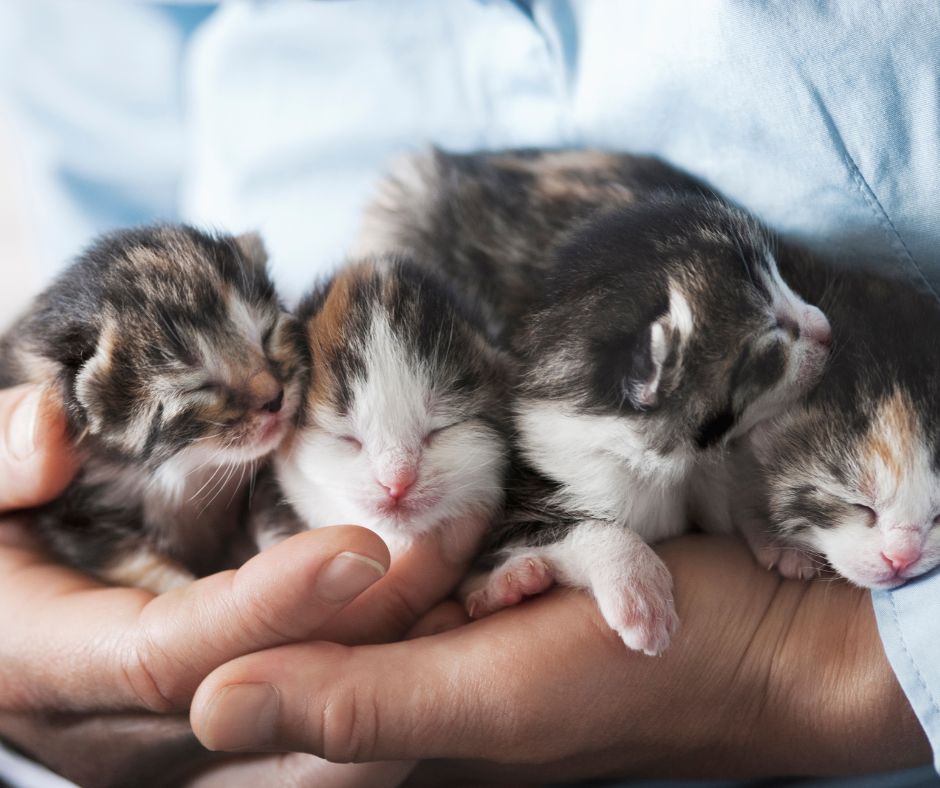
A reputable breeder will welcome you to visit their facilities and meet the animals in their care.
This transparency is crucial for verifying the living conditions and overall health of the pets.
If a breeder is hesitant or outright refuses to let you see where the animals are raised, consider it a major red flag.
Such reluctance could indicate poor living conditions, lack of proper socialization, or even that they might be operating a puppy mill.
Visiting the facility allows you to see firsthand how the animals are treated and ensures they’re being raised in a loving, healthy environment.
In the event that the breeder runs a "closed cattery" bear in mind that this is a valid practice. It protects the cats and kittens from contacting certain illnesses. On the other hand, it can be used an excuse to hide.
Overly Aggressive Sales Tactics or Unwillingness to Answer Questions
Another red flag is a breeder who employs high-pressure sales tactics or is unwilling to answer your questions thoroughly.
Reputable breeders want to ensure their animals go to good homes and will take the time to answer all your questions, no matter how many you have.
They'll be more interested in finding the right match for their animals rather than making a quick sale.
If a breeder seems aggressive in pushing you to make a purchase or avoids answering questions about their breeding practices, health guarantees, or the animal’s background, it's a clear sign of little experience and questionable motives.
By staying alert to these red flags, you can make an informed decision and find a reputable breeder who prioritizes the health and happiness of their animals.
Together, let’s champion responsible pet ownership and ensure every furry friend finds a loving, well-prepared home!
Questions to Ask Potential Breeders
Finding the perfect new kitten or puppy is an exciting adventure, and asking the right questions is key to ensuring you choose a reputable breeder.
By being thorough and informed, you can feel confident that your new pet will come from a healthy, ethical environment.
Your ethical, responsible breeder will be happy to answer these questions. It shows that you are informed, responsible and ready to provide the best home possible!
Here are essential questions to ask potential breeders to guide you on this journey!
Inquiries About Health Testing and Veterinary Care
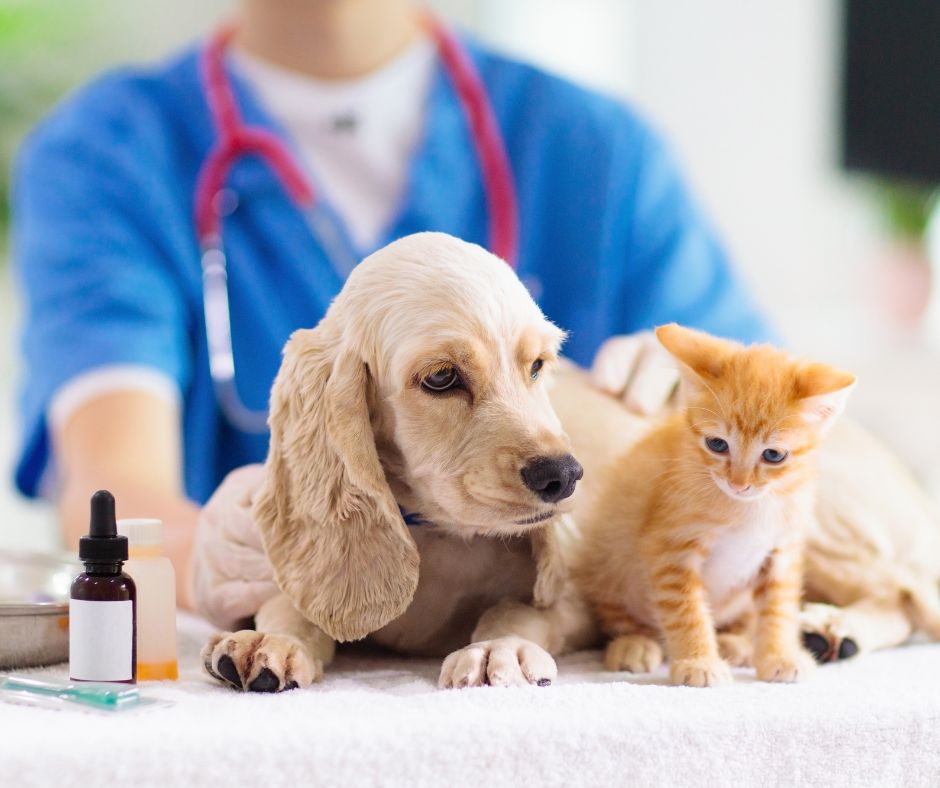
First and foremost, inquire about the health testing and veterinary care provided to the animals.
Ask the breeder about the specific health tests they perform to screen for genetic disorders common to the breed.
A reputable seller should be able to provide detailed information and documentation on the health screenings their breeding animals undergo.
Additionally, ask about the veterinary care the animals receive, including vaccinations, deworming, and routine check-ups.
Ensuring that the breeder prioritizes comprehensive veterinary care is crucial for the long-term health of your future pet.
First and foremost, inquire about the health testing and veterinary care provided to the animals.
Ask the breeder about the specific health tests they perform to screen for genetic disorders common to the breed.
A reputable seller should be able to provide detailed information and documentation on the health screenings their breeding animals undergo.
Additionally, ask about the veterinary care the animals receive, including vaccinations, deworming, and routine check-ups.
Ensuring that the breeder prioritizes comprehensive veterinary care is crucial for the long-term health of your future pet.
Questions About the Breeder's Experience and Involvement in Breed Clubs
Understanding the breeder's experience and involvement in breed clubs can give you insight into their dedication and expertise.
Ask how long they have been breeding and what led them to start their breeding program.
Inquire about their membership in breed clubs or associations, which often have strict standards and guidelines for ethical breeding practices.
A breeder who is actively involved in breed clubs is likely committed to maintaining the breed standard and continuously improving their breeding practices.
Requests for References from Previous Buyers
Another crucial step is to request references from previous buyers. Speaking with others who have purchased pets from the breeder can provide valuable insights into their experiences and the quality of the animals.
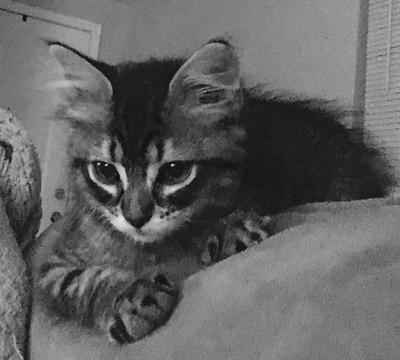
Ask the breeder if you can contact past buyers to hear firsthand about their pets' health, temperament, and satisfaction.
Honest breeders will gladly provide references and may even encourage you to connect with their community of happy pet owners.
By asking these important questions, you can ensure that you'ree choosing a breeder who is dedicated to responsible practices and the well-being of their animals.
Verifying Breeder Credentials
Choosing a responsible and ethical breeder is essential, as we can see. Verifying their credentials is a critical step in this process.
Let’s explore how to confidently assess a breeder’s legitimacy and commitment to their animals!
Checking for Memberships in Recognized Breed Clubs
A hallmark of a reputable breeder is their membership in recognized breed clubs or associations.
These organizations often have strict standards and ethical guidelines members must follow, ensuring high-quality breeding practices.
Ask the breeder if they are a member of any breed clubs and verify this information with the club directly.
Membership in such clubs indicates that the breeder is dedicated to maintaining the breed standard and is committed to the welfare of their breeding stock and companion animals.
This commitment often translates into healthier, well-adjusted pets for their new home.
For purebred kittens such as Maine Coons, this refers to the organizations CFA (Cat Fanciers Association), TICA (The International Cat Association), and sometimes also MCBFA (Maine Coon Breeders and Fanciers Association).
Their registration in these associations means they have a network of support and resources that contribute to the health and well-being of their animals.
It also means that they have committed to the responsible breeding practices set forth by these associations. This is what is meant when you encounter the term "registered breeder."
But, you must take care to note that scammers and dishonest people can lie about membership, or even provide fake proof of membership.
It's important that you visit the website of, or call the association to confirm your potential breeder is indeed a member in good standing.
Researching the Breeder’s Reputation Online and Through Word-of-Mouth
In today's digital age, researching a breeder's reputation online is easier than ever.
Look for reviews and testimonials from previous buyers on various platforms, such as social media, breeder directories, and forums dedicated to pet enthusiasts.
Pay attention to the experiences of others about the health, temperament, and satisfaction with their pets.
Additionally, word-of-mouth recommendations can be invaluable. Ask friends, family, or your veterinarian if they have heard of the breeder and what their impressions are.
A breeder with a stellar reputation is more likely to provide you with a healthy, well-cared-for pet.
Visiting the Breeding Facility in Person if Possible
One of the most effective ways to verify a breeder's credentials is by visiting their breeding facility in person.
This visit allows you to see firsthand the environment in which the animals are raised. Observe the cleanliness, space, and conditions of the facility.
A reputable breeder will welcome your visit and proudly show you around, demonstrating transparency and commitment to their animals’ welfare.
You'll also have the opportunity to meet the breeding stock, which should be healthy, well-socialized, and reflective of the breed standard.
This visit provides crucial insights into how your potential new companion animal has been cared for from the start.
By taking these steps to verify breeder credentials, you ensure that your new home will be graced by a pet from a loving, responsible background.
The Role of Rescue Organizations
Rescue organizations play a vital role in the landscape of responsible pet ownership.
These dedicated groups work tirelessly to provide loving homes for animals in need and combat the negative impacts of backyard breeding.
For folks who find the higher prices of registered breeder to be prohibitive, this is a great option!
Adopting from Shelters and Rescues
Adopting a pet from a shelter or rescue organization offers many benefits.
These groups are filled with animals waiting for their forever homes, many of whom have been rescued from dire situations.
By adopting, you're giving a second chance to a deserving animal and opening up space for more rescues.
Shelters and rescues often provide thorough medical care, vaccinations, and spaying or neutering before adoption, ensuring your new companion is healthy and ready for their new home.
The Work of Breed-Specific Rescues
Breed-specific rescues focus on particular breeds, providing specialized care and rehoming services.
These organizations deeply understand the breed's unique needs and characteristics, making them excellent resources for potential pet owners.
Whether you're looking for a Maine Coon cat or a Golden Retriever, breed-specific rescues can match you with the perfect companion while ensuring that the animals receive the specialized care they need.
Combating the Issues Caused by Backyard Breeders
Rescue organizations often find themselves on the front lines, dealing with the fallout from backyard breeders.
Animals from these environments often arrive with health or behavioral issues that need extra care and attention.
Rescues work to rehabilitate these pets, providing medical treatment and socialization to prepare them for adoption.
By supporting rescue organizations, we help mitigate the harm caused by irresponsible breeding practices and contribute to a more compassionate community.
So what ever happened with that litter of puppies? As I passed by on my ride home, the yard and pen were full of people and puppies.
I would imagine they all found homes. As cute as they were, I know that when I'm ready for a puppy or for more Maine Coon kittens, I will be reaching out to a local, ethical, experienced and registered Maine Coon cat breeder!
Top of What is a Backyard Breeder?
« Back to Maine Coon Kittens for Sale
Recent Articles
-
Memory Lane Month Begins!
Apr 15, 25 10:22 PM
We're thrilled to start our "Memory Lane Month" event by visiting some cherished moments from our community! We're in the process of restoring meaningful community stories like this one, to preserve t… -
Will a Maine Coon Protect Its Owner From Danger or an Intruder?
Apr 09, 25 10:41 PM
Plenty of people are curious: Will a Maine Coon protect its owner if something happens? Let’s talk about what this means, and what kind of protector a Coonie is. -
9 Types of Maine Coon Cats and How to Tell Them Apart
Apr 09, 25 03:58 PM
When people say "types of Maine Coon cats," they're usually talking about color. But as Coonie lovers know, there’s a lot more to it than that! From wild-looking European lines to polydactyl paws and…
